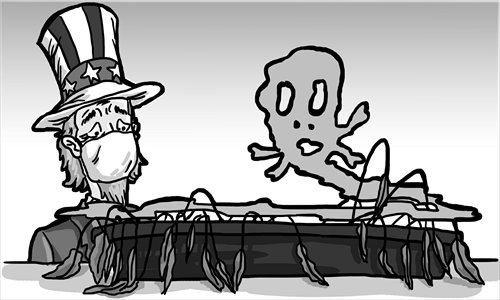Agent Orange cleanup overdue, and not enough for real justice

Fifty years after the US began spraying Agent Orange in Vietnam to clear jungle and destroy agricultural land, the US has begun funding technical cleanup of the Da Nang International Airport where the herbicide was stored, loaded, and spilled.
The site is now heavily contaminated by dioxin, a deadly byproduct of Agent Orange. The initial funding will amount to about $43 million. It will take about four years to clean up the 47-acre site, on the edge of Da Nang's International Airport.
This comes after nearly two decades of advocacy, negotiations, denial, and lawsuits involving US veterans and citizens, Vietnamese victims, international lawyers and rights activists. That many of these key parties joined together at Da Nang on August 9 to launch this effort is of some significance.
However, it should be viewed as a long overdue first step, an initial investment in a longer-term plan to deal with the problem of Agent Orange that is not limited to expensive, high-tech cleanup only.
The US and Vietnam now need to cooperate and assist the many Vietnamese families who are desperately sick or disabled. This commitment should be shared between Vietnam and the US, and it should be massive.
Vietnamese Prime Minister Nguyen Tan Dung signed a national action plan in June which outlines preferential policies for veterans who were exposed to Agent Orange and their children, monthly allowances and health insurance for victim families, and special support for pregnant women in heavily contaminated areas.
The plan provides for improvements in technical research and medical analysis standards, and environmental remediation of hundreds of thousands of hectares of land. It calls for expanded health clinics, rehabilitation centers, and reproductive health services, genetic counseling, and prenatal diagnosis in heavily contaminated areas.
The government of Vietnam has already budgeted $100 million in 2012 to support Agent Orange victim families, far more than contributions from the US or other nations.
The US should now support this plan with its own major funding and with US expertise in medical, technical, social work and other fields.
The Aspen Institute, a prominent American think tank, has recommended, at a minimum, that the US should invest $450 million over a 10-year period to clean up the remaining hotspots, and to support some of the health and family support measures included in the Prime Minister's plan. That would be a good next step for the US government, to follow quickly after the Da Nang International Airport ceremony last week.
But $450 million? That's a huge amount of money, right? It's actually far less than the US spends on the war in Afghanistan in a week.
The US government, to its credit, has not neglected US veterans affected by Agent Orange. As of 2010, some $30 billion had been budgeted for veterans' medical care, disability compensation, and other benefits related to Agent Orange over the last 10 years.
But while US veterans have received compensation, the US has refused to help Vietnamese victims of Agent Orange. It claimed that there was no medical proof of the cause. For most US citizens, that double standard is not acceptable.
The US does now provide some funding for medical, disability, and health related problems in Vietnam. But it carefully avoids making any connection with Agent Orange. And the amounts simply are not enough.
The budget mess in Washington is an easy excuse to do nothing. Vietnam has no lobbying presence in Washington, so Vietnamese victims of Agent Orange do not have a strong, powerful voice representing them.
For many US veterans, this is a moral and ethical issue. It transcends the war in Vietnam and extends to the conduct and the consequences of military conflicts anywhere in the world. What do we do when a fragile peace is finally restored in areas of human and physical devastation?
There must be an obligation on the part of all combatants, most particularly the invading and occupying force, to help bring back some normalcy in these tragic circumstances, for survivors and for future generations.
The ceremony in Da Nang last week reminds us that maybe we have reached that point in Vietnam. The two governments are now dealing openly with one of the remaining legacies of the war. It should now be followed by other steps that reflect much greater commitments of money, resources, and moral purpose. Only then can we truly close this tragic chapter of history shared between the US and Vietnam, and move to a brighter future of healthy generations of US and Vietnamese children who are no longer crippled by the toxic legacy of Agent Orange.
The author is a US veteran who has worked on humanitarian issues in Vietnam for 17 years. opinion@globaltimes.com.cn